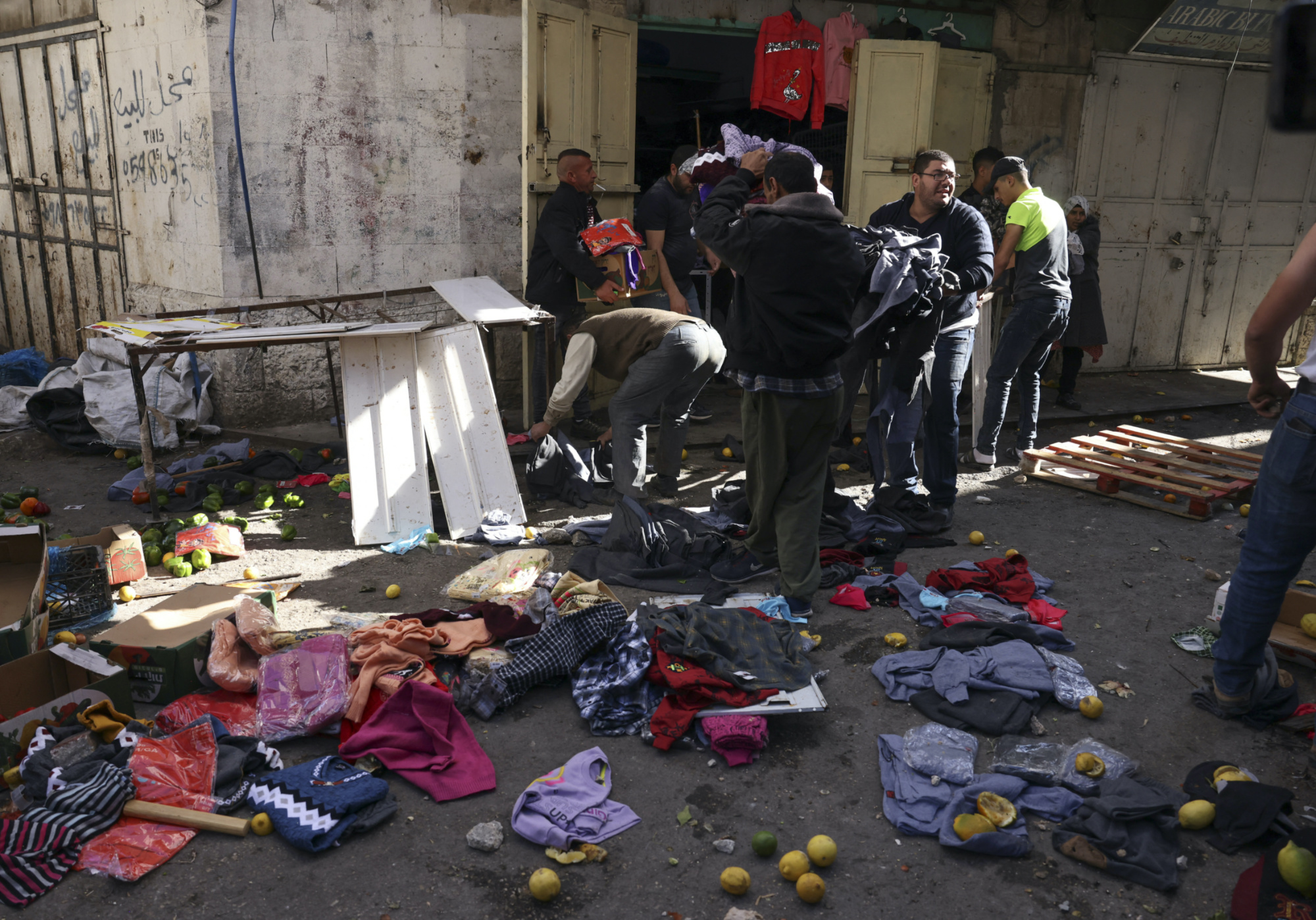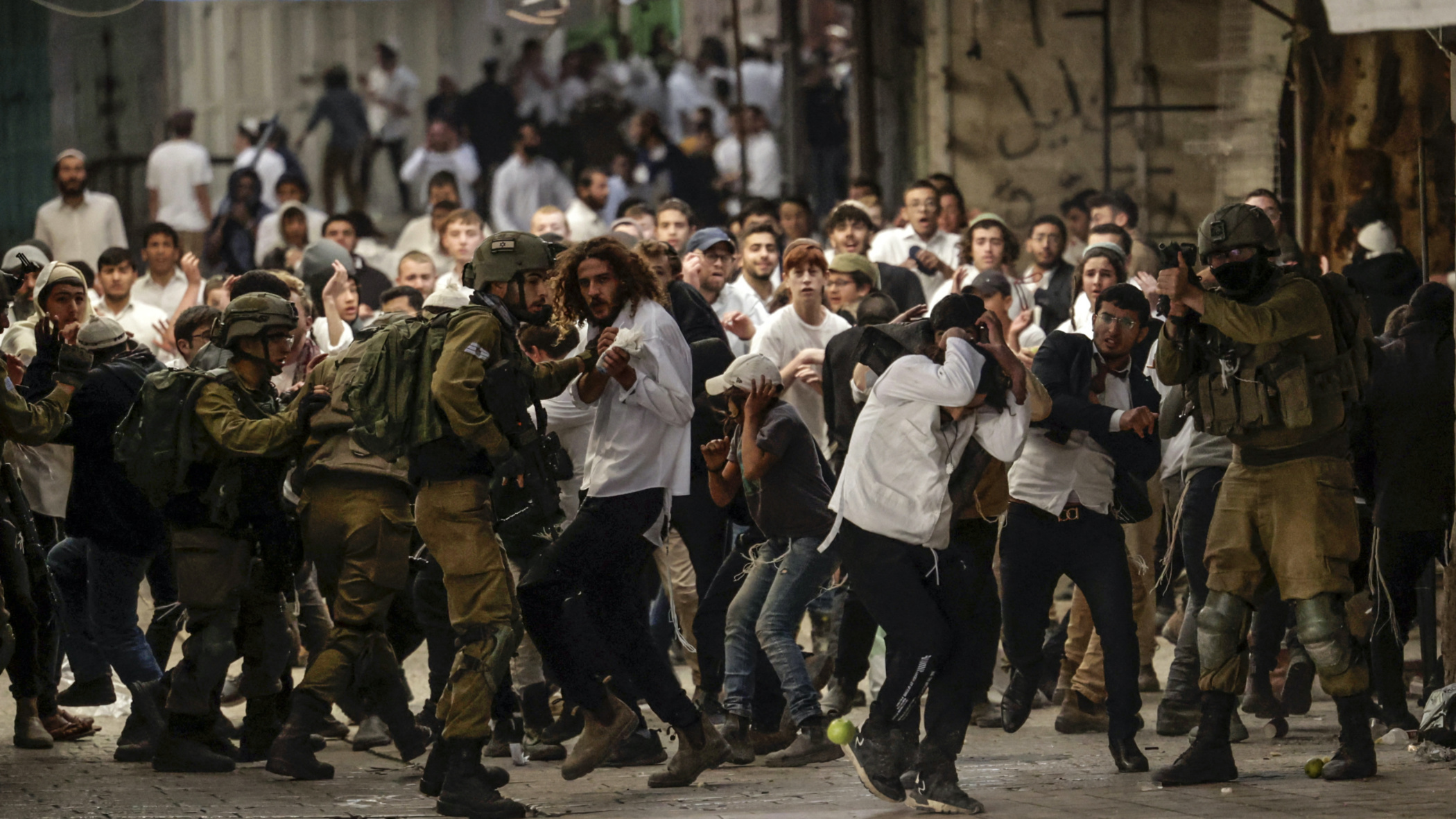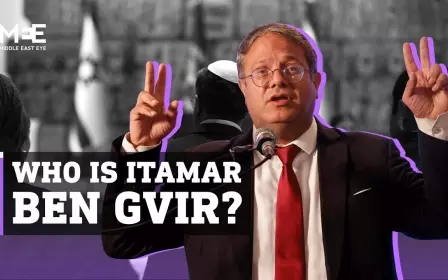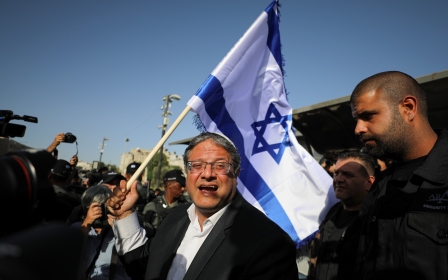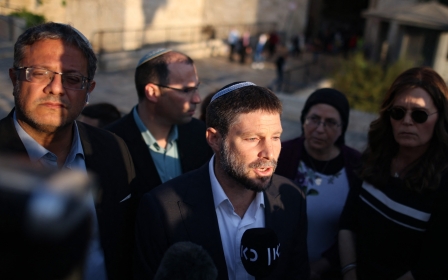Hebron: Thousands of marching Israeli settlers leave trail of destruction
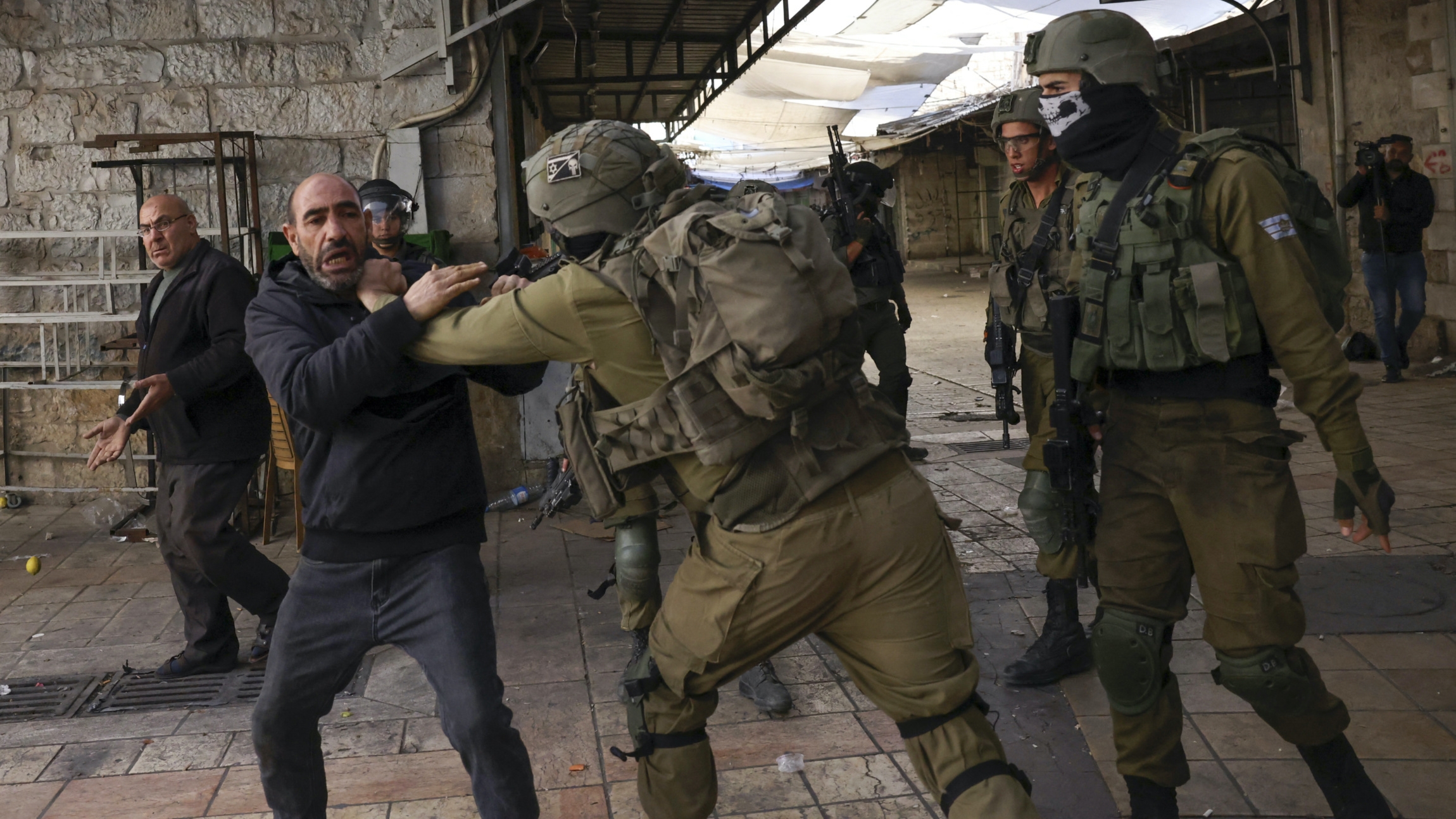
It's Friday night and a huge crowd of Israeli Jewish settlers are milling around outside the Ibrahimi Mosque in the old Palestinian city of Hebron.
Prominent among them is Itamar Ben-Gvir, the new champion of Israel’s racist far right and one of the leaders of the Religious Zionism movement, which secured 14 seats in the recent general election.
Ben-Gvir, who lives in the nearby occupied West Bank settlement of Kiryat Arba, home to some 7,000 settlers, is basking in this election triumph. Some of his supporters are drunk, and scuffle with Israeli soldiers. Others peel off to throw stones at a Palestinian house.
An estimated 32,000 settlers travelled from across the West Bank to the mosque - known to Jews as the Tomb of the Patriarchs - for a reading of the Torah portion Chayei Sarah from the Book of Genesis.
They sleep the night in tents, and the following morning the Israeli army makes a reckless decision.
The morning after
On the morning of 19 November, soldiers open the gate that divides the Israeli-controlled area around the Ibrahimi mosque to Hebron's old city market officially controlled by the Palestinian Authority.
Shortly beforehand, they advanced through the old market erecting barriers to create a supposedly safe passage for settlers intent on reaching the tomb of Othniel ben Kenaz, a biblical judge whose shrine is believed to be located in Hebron.
Other soldiers with loudspeakers warn Palestinians to close their shops. They obey, but inevitably the settlers break away from the designated route.
After marching through closed areas of the garment market, they divert into the still open vegetable market, overturning stalls and hurling rocks as well as abuse along the way.
They also smash the doors of two mosques and damage vehicles belonging to shopkeepers.
When Middle East Eye arrives on the scene the following morning, evidence of damage could be seen everywhere.
One elderly female shopkeeper points at stones strewn around the floor and says they were hurled by settlers.
One terrified elderly shopkeeper collapsed during the attack and was taken to hospital with a suspected heart attack.
Khader, a baker, says, "They started storming our shops at 10am. They started attacking every shop here.
They came from every side. They even smashed the door of the mosque [Bab al-Zawiya Mosque]."
He explains further: "The settlers were divided into five divisions. They started attacking at the same time.
They came from everywhere, from all the settlements. They had guns."
Another shopkeeper, Tareq, takes MEE to his car to show a smashed windscreen and panels that had been dented by marauding settlers. Another damaged car is parked nearby.
Tareq says the settlers acted with impunity. "The settlers had black trousers, white shirts and black flags," he says. "If the Israeli government didn't want them to do that [ransack stalls], they would stop them."
The shopkeepers say that settlers had swept through the area, overturning tables laden with fruit and vegetables, and throwing stones, leaving a number of Palestinians wounded.
The shopkeepers say that some settlers carried weapons, but did not use them. Meanwhile, Israeli soldiers, who had arrived on the scene after some time, attacked Palestinians who stood up to settlers.
When contacted by MEE, the Israeli army declined to comment.
Free from Palestinians
The settler march - one of the largest on record in Hebron - came just weeks after religious parties, which make no secret of their intention to rid Palestine of "disloyal Arabs", surged in the Israeli elections.
Ben-Gvir, leader of Otzmar Yehidit party, is champion of a settler movement that seeks to drive Palestinians out of occupied East Jerusalem and to establish an Israeli state free from Arab interference across the West Bank.
For Ben-Gvir, and the religious right he represents, the West Bank is the heartland of the biblical sites that represent the "real Israel".
He and his allies had secured their huge electoral gains on a mandate that calls for major changes in the right of access for Jews into some of the most important Muslim holy sites in Palestine.
Most important of all, they want full prayer rights at al-Aqsa Mosque, one of Islam's three holiest sites, a move certain to disrupt the sensitive status quo agreement that has determined access to Palestinian holy sites for decades.
Hebron’s Ibrahimi Mosque is regarded as a holy site by Jews, Muslims and Christians alike as the birthplace of Prophet Abraham, patriarch of all three religions.
In 1994, an armed Jewish settler, Baruch Goldstein, entered the complex during the Islamic holy month of Ramadan and opened fire on Muslim worshippers, killing 29 people and wounding more than 120.
For Ben-Gvir and many of his settler followers, Goldstein is a hero.
Goldstein is buried at Ben-Gvir’s home town, and his grave is regarded by many settlers as a shrine.
Until his recent election to the Knesset, a picture of Goldstein hung on the wall of Ben-Gvir’s home. This comes as no surprise, however. As a young man, Goldstein was an organiser for the now-banned Kach party, a Jewish settler movement for which Ben-Gvir played a central role as a youth, even though it was deemed a terrorist organisation across the world.
Ben Gvir’s Otzma Yehudit party is open to the charge that it stands for the same far right, anti-Palestinian, authoritarian principles as the Kach.
He is now seeking to leverage his recent electoral success to become Israel’s security minister under a new Benjamin Netanyahu government, which could spell more trouble for Palestinians.
Middle East Eye propose une couverture et une analyse indépendantes et incomparables du Moyen-Orient, de l’Afrique du Nord et d’autres régions du monde. Pour en savoir plus sur la reprise de ce contenu et les frais qui s’appliquent, veuillez remplir ce formulaire [en anglais]. Pour en savoir plus sur MEE, cliquez ici [en anglais].


